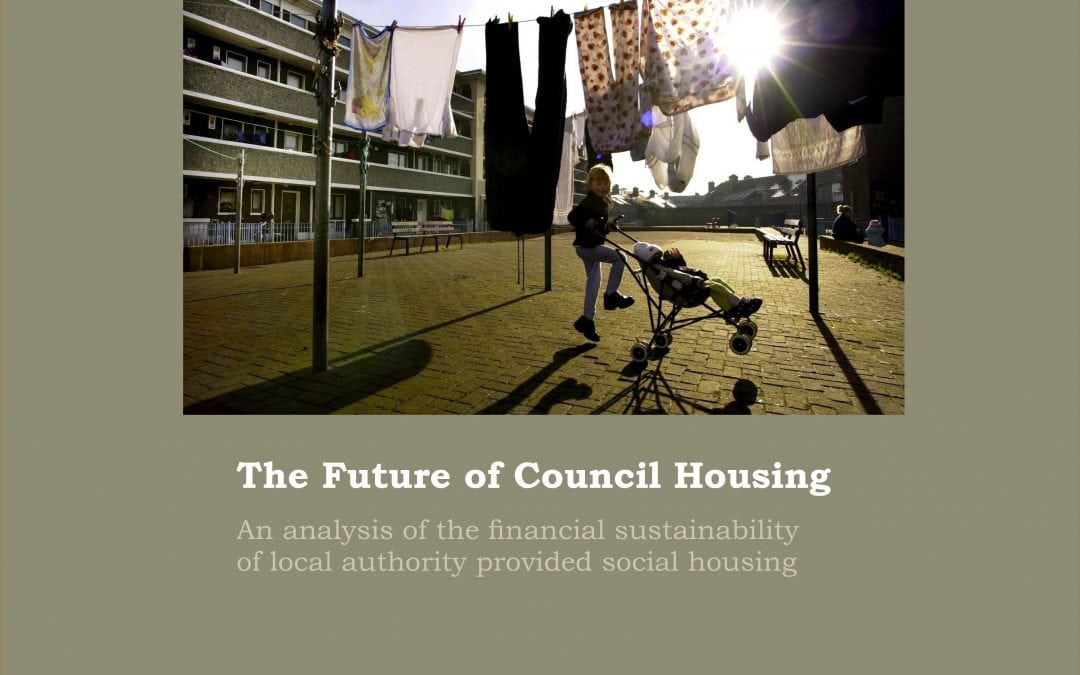A report on the future of council housing has recommended the suspension of tenant purchase schemes and a new funding model for the provision of council housing.
The report – The Future of Council Housing: An Analysis of the financial sustainability of local authority provided social housing – makes a series of recommendations focused towards increasing council output and ensuring the sector is managed and maintained more effectively.
It recommends the suspension of tenant purchase schemes, removal of successor tenancies which allow the children of sitting tenants to inherit tenancies and advocates the construction of smaller council housing units to enable tenants to downsize after children are raised.
The authors of the report, Prof Michelle Norris and Dr Aideen Hayden, of the UCD School of Social Policy, Social Work and Social Justice, advocate the radical restructuring of funding of council housing. They say that funding housing provision through central Government grants has made the “up front” costs of delivering council housing expensive. They argue that a European model of funding via loans to local councils discharged over a longer period of time would be more effective and affordable.
The authors say funding by Government grants has made provision of council housing pro cyclical – with cash available during boom times to build homes when construction costs are at its highest and little or no construction when Exchequer funding is depleted but building is much cheaper.
Capital spending on new council housing declined rapidly after the economic crisis in 2007/08, falling 94% between then and 2013. In 2013, spend on council housing stood at €55 million but has since increased to €561m this year.
The report, which was commissioned by the Community Foundation for Ireland – an organisation which advocates a fair, caring and thriving Ireland – and funded by donations, points to a long tradition of provision of social housing by local authorities. In total, local authorities have provided 365,350 council housing units since the 19th Century, a figure that accounted for 22% of total Irish housing stock in 2016. During the 1960s and 1970s, one third of all house constructions were council dwellings.
Two thirds of all council housing stock has been disposed of by way of tenant purchase, making an important contribution to increasing home ownership but reducing significantly council homes available for rent. Between 1990 and 2016, 43% of the 82,869 council houses built during that period were sold to tenants, in certain instances at up to 60% discount on market value.
Overall, the 2016 census revealed that 8.7% of all households and 30.4% of all renters in cities were accommodated in council housing.
The report authors carried out in depth interviews with council, Government and housing agency officials who pointed to increased pressure on tenants securing private rented accommodation. “In their view this problem is a key driver of homelessness and can only be resolved by providing more social rented housing,” the report states.
Among other conclusions the report recommends:
- Allow local authorities to retain more property tax revenue to fund dwelling provision, reducing the redistribution of tax from urban authorities where housing demand is high to rural local authorities where housing demand is lower
- Allow for the compulsory deduction of council housing rents from social welfare payments
- Require local authorities to ringfence income from rents to spend on council housing management and maintenance
- Streamline the Department of Housing’s approval process for new council housing developments.
The report was launched today in Dublin by Eoghan Murphy TD, Minister for Housing, Planning and Local Government.
The report is available to download here: http://www.communityfoundation.ie/insights/research
